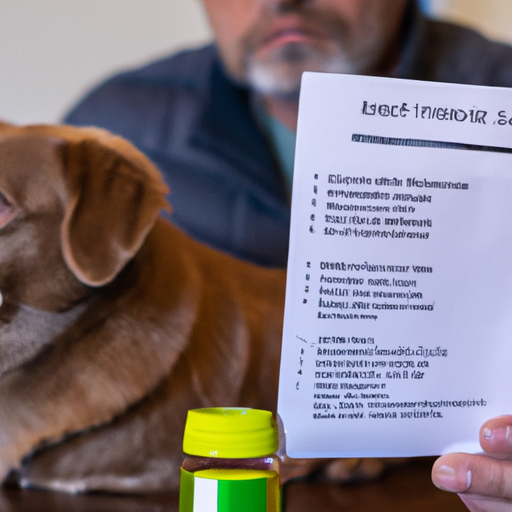Introduction
You’re the one your dog looks up to. You’re their protector, their guide, their best friend. As a caregiver, you always want to ensure your furry pal is healthy and happy. But what happens when a routine visit to the vet reveals high liver enzyme levels? Confusion, worry, questions – these are all natural responses. But, take a deep breath. I’m here to help you navigate this rocky terrain.
What Exactly Are Liver Enzymes?
Before we dive into the causes, it’s crucial to understand what liver enzymes are and why they matter. You see, enzymes are proteins that speed up chemical reactions in the body. In your dog’s liver, these enzymes play a vital role in metabolizing nutrients, detoxifying the body, and producing bile – a substance necessary for digestion.
| Enzyme | Function |
|---|---|
| ALT (Alanine Aminotransferase) | Primarily found in the liver and leaks into the bloodstream when liver cells are damaged |
| AST (Aspartate Aminotransferase) | Found in several tissues, including the liver, and can indicate cell damage |
| ALP (Alkaline Phosphatase) | Found in liver and bone cells and can indicate cholestasis or bone disease |
| GGT (Gamma-glutamyl Transferase) | Indicates cholestasis and is very sensitive to changes in bile flow |
The Potential Causes of High Liver Enzymes
If your dog’s liver enzyme levels are high, it could be due to a number of reasons. Let’s unpack them one by one:
- Hepatitis: This inflammation of the liver can be caused by viruses, toxins, or an autoimmune response. It’s often accompanied by symptoms like loss of appetite, vomiting, and jaundice.
- Cushing’s Disease: This condition, resulting from an overproduction of the hormone cortisol, can cause liver enlargement and elevated enzyme levels.
- Toxins or Drugs: Certain medications or exposure to toxins can cause liver damage, leading to increased enzyme levels. Be careful what your dog ingests!
- Cancer: Liver tumors, whether benign or malignant, can disrupt normal liver function and cause a spike in enzyme levels.
How Can You Protect Your Dog?
As a caregiver, your instinct is to protect. Here are some steps you can take:
- Regular Vet Visits: Routine check-ups can catch abnormalities before they become serious.
- Balanced Diet: A diet rich in nutrients, without harmful additives, supports overall health.
- Avoid Toxins: Be mindful of your dog’s environment and prevent access to potentially harmful substances.
Treating High Liver Enzymes
Depending on the cause, treatments can range from medication to surgery, or even just careful monitoring. Always consult with your vet to determine the best course of action.
Frequently Asked Questions
Q: Does high liver enzyme always mean disease?
A: Not necessarily. Elevated levels can sometimes be a normal response to strenuous exercise or a temporary reaction to medication.
Q: Can diet lower high liver enzymes in dogs?
A: Yes, a balanced, low-fat diet can help support liver health and lower enzyme levels.
Q: How often should my dog’s liver enzymes be checked?
A: Regular vet visits are crucial. However, if your dog has been diagnosed with liver issues, your vet may recommend more frequent testing.
Remember, every dog is unique. What works for one may not work for another. The key is to stay informed, remain vigilant, and always consult with your trusted vet. After all, you’re not just a pet owner. You’re a caregiver.



